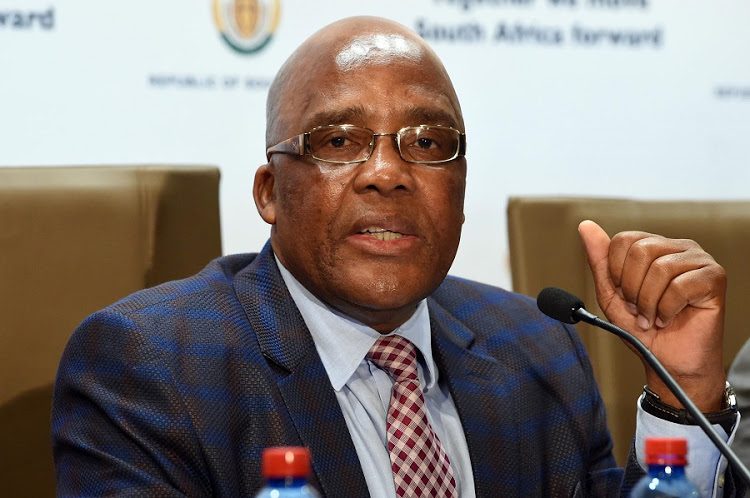WITH less than two months before the South African government terminates the Zimbabwean Exemption Permits (ZEP), gloom and despair have set in for the permit holders and their families.
In January 2022, the South African cabinet decided that the ZEP arrangement had to be terminated by December 31, 2022, and applicants should apply for other visa regimes for which they qualify, or for a waiver of certain requirements of the visas they apply for to retain their legal status in the country.
On September 2, 2022, Home Affairs minister Aaron Motsoaledi issued a directive extending the ZEPs for an additional six months, until June 30, 2023. The termination of the permits does not affect Zimbabweans who hold refugee, asylum seeker, spousal, critical skills or business visas or permits.
A review application by the Helen Suzman Foundation and the Consortium for Refugees and Migrants in South Africa, seeking to have the decision to refuse further extensions of the ZEPs declared unlawful, unconstitutional and invalid, is before the high court.
The ZEP grants temporary legal status to Zimbabwean nationals living in South Africa. There are about 178 000 permit holders. ZEP holders say their lives and the lives of their families are on the verge of ruin.
“I have been in South Africa since 2008. The only thing I know about Zimbabwe is that people are really suffering back home. “The Zimbabwean government is doing nothing to help us, not to mention helping the masses back home,” said ZEP holder Christopher Pagiwa.
“We are also suffering humiliation at work, our South African colleagues always remind us that we are no longer wanted in South Africa.” Pagiwa said he would be happy if the South African government offered an additional extension of the permit while the two governments negotiated. ZEP holder Virimayi Brettenel Moya said: “Even when I am stopped by the police, they always remind me that my ZEP permit will not be of any effect beyond June 2023.
“Life is tough, there are no jobs, and the volatile political situation in our country is unbearable. That is why South Africa has seen an influx of Zimbabwean nationals over the past decade.” Many Zimbabwean nationals, including Moya, who applied for a waiver said they were still waiting. “I applied for the waiver in February last year, but I am still awaiting a date,” Moya said.
Dysfunctionality at the department of Home Affairs (DHA) has led to poor service delivery. In an effort to address this, the department has embarked on a digitisation programme. “At school they want our kids to have study permits. We keep getting calls about when we will be updating our children’s documents,” Moya said.
He arrived in South Africa in 2005 and his firstborn child, who is now 14, has lived here his whole life. “My child will have a big challenge adapting to the language in Zimbabwe and that might affect his studies,” Moya said. Bongani Mkhwanazi, a spokesperson for the Zimbabwean community in South Africa, said most ZEP holders were people with low skills, employed as domestic workers or in other menial jobs which were not available in Zimbabwe.
“Also, the economic state of Zimbabwe is very worrying to permit holders because even if it were to improve, they would find themselves unable to acclimatise to it,” Mkhwanazi said. He said ZEP holders had approached his office seeking its intervention as the DHA had said they were economic migrants and did not qualify to seek refuge by claiming persecution in their country of origin. “There are actually more undocumented people because of these permits’ nullification.”
Mkhwanazi said most complaints from the ZEP holders related to the termination of their employment, bank account closures, street arrests and/or extortion by police for failure to produce valid documents.
“It must be noted that some, if not many people merely use these permits to be able to purchase goods in South Africa for resale in Zimbabwe,” Mkhwanazi ‘Our lives are on the verge of ruin’ said. The Zimbabwe government has announced its intention to assist with the repatriation of Zimbabweans who are willing to return home but, said Mkhwanazi: “In practice, we do not know what the Zimbabwean government will actually assist with.
“We had beseeched them to deal with customs duty issues and placement of children who are studying here.” “I can describe my situation as one of high stress levels, anxiety and a feeling of desperation,” ZEP holder Bright Moyo said. “The Zimbabwe government has said they are working on receiving all ZEP holders returning home.
As a ZEP holder myself, I have not received any documentation pertaining to such from our government,” Moyo said. “I have stayed in SA since 2000 and would have loved to see a more feasible and realistic approach rather than just political rhetoric. — DM

